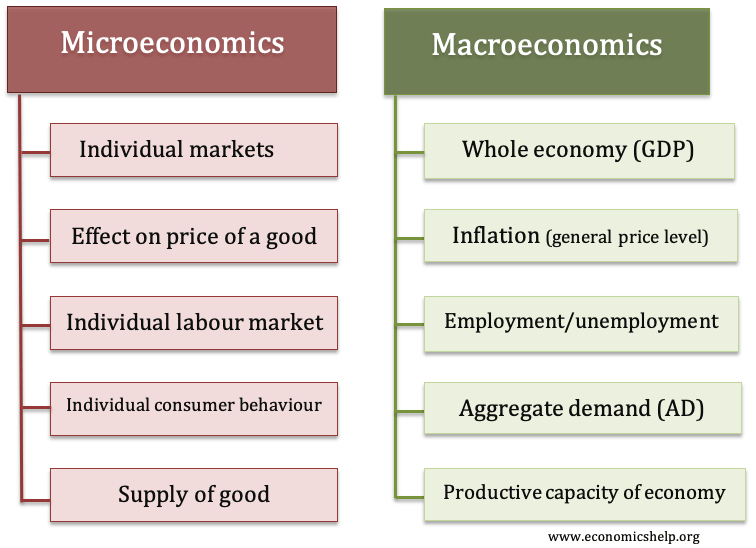Is AP Macroeconomics Hard? Is AP Macroeconomics Worth Taking?
5 min read•july 11, 2024
Dylan Black
AP Macroeconomics 💶
99 resourcesSee Units
What's AP Macro All About?
Welcome to AP Macroeconomics! This course is, for many, the first taste of economics that you get in high school, and the course teaches you
- all about the economy
- how to measure the economy
- and how to adjust certain indicators to expand or contract the economy.
However, there are many, many misconceptions about what exactly economics is and what exactly you're going to learn in AP Macroeconomics.
What is Economics?
The first and foremost answer to the question "what is economics" is "the study of money." While this is a clear logical answer, economists also talk about banking, stocks, and bonds related to money. The "study" of money is closer to the field of finance.
Ok, so if economics isn't the study of money, then what is it? Well, a simple Google search tells us that economics is defined as "the branch of knowledge concerned with the production, consumption, and transfer of wealth". That wasn't super helpful.
We have a definition for economics, but what exactly does it mean? The most important part of this definition is not necessarily "transfer of wealth," but rather "production [and] consumption."
Economics is the study of choices. Economics answers questions like "how much should we produce?" and "how much should we consume?" These choices are brought upon by scarcity. Everything in economics comes back to scarcity, which is the idea that we have unlimited wants but limited resources. How we allocate resources to make choices and produce goods is what economics studies.

Image from GIPHY.
Macroeconomics vs. Microeconomics
There are two broad fields of economics, those being macroeconomics and microeconomics. While it may seem that these fields are complete opposites, they interconnect and intersect at many points. Let's start by focusing on their differences.

Image from EconomicsHelp
As you may notice in the above chart, microeconomics focuses primarily on the small scale of economics, exploring topics like supply and demand, market structures, labor markets, price determination, and other more small scale topics.
On the other side, macroeconomics takes a broad scale larger look at the economy, focusing on the economies of countries and even the entire world by the end. You'll learn about topics like aggregate supply and demand, productivity, and fiscal and monetary policy. Instead of studying quantities and prices like in microeconomics, you'll study GDP and inflation—measures of quantity and price.
Specifically, the content in AP Macro breaks down into two broad categories: how to measure the economy and how to adjust the economy. The former of the two will explore macro measures like GDP, unemployment, and inflation and the relationship between these 3 and the business cycle. The latter will explore policies to change these measures to a healthy economic state.
How Hard is AP Macro?
AP Macroeconomics ranks as an easier than average AP subject.
A survey by /r/APStudents found that on a scale of 1-10, 1 being the easiest and 10 being the hardest, veterans of AP Macro rate it a 4.4, whereas the average is a 5.4 💪
The hardest part of AP Macro is that the material is not something you typically have learned before. Compared to classes like AP Calculus or AP Lang, in which you've taken math and English classes in the past, the majority of students have never taken economics before. However, this isn't the end of the world! Despite the new material, the course builds on itself and starts with the basics.
For example, the CollegeBoard knows most students haven't learned economics, so the first unit in both AP Macro and AP Micro is titled "Basic Economic Concepts" that introduces the idea of economics 🤔
Is AP Macro Worth Taking?
In a survey conducted by /r/APStudents, 75% of AP Macroeconomics students would recommend the course, with one advising that you should take the course "only if you have a decent teacher or can self-study if you do not."
There are a few reasons that AP Macroeconomics might not be the class for you. Do not take AP Macro expecting to learn business, how to buy stocks and bonds, and how to get rich 😂While the course has topics related to this, economics, as we previously discussed, is not the study of money and will not focus on such topics. While this isn't to discourage you from taking AP Macro or pursuing studies such as business, you should expect to spend the majority of your time learning things that aren't business-related in AP Macro.
Furthermore, AP Macroeconomics, despite being called an "easy AP," is still an AP class. Do not take AP Macro if you're looking simply for a GPA boost. The content in AP Macro will be, for the most part, brand new to you. Because of this, if you don't care about the class, you're bound not to enjoy it.

You may see something like this in a business class, but hardly in economics as it relates to revenue and profit. Source: GIPHY
Alright, so why should you take AP Macro? Well, first and foremost, economics is awesome! Many people associate learning economics with a slew of math and graphs and while this is a lot of the content, you will be able to understand how the world works and how an event affects everyone. Coming out of AP Macro, you'll understand when people say "well in this economy" and will make accurate policy suggestions from analyzing economic conditions. Although these skills may not directly relate to your career, they will help you have a better view of what your future looks like and assist you in predicting what decisions to make in the future.
Conclusion
AP Macroeconomics is a course that doesn't only teach you about economics, but also about how to think and problem-solve contrary to most classes. You gain useful knowledge that will follow you throughout your life. You got this 🎉
Browse Study Guides By Unit
💸Unit 1 – Basic Economic Concepts
📈Unit 2 – Economic Indicators & the Business Cycle
💲Unit 3 – National Income & Price Determination
💰Unit 4 – Financial Sector
⚖️Unit 5 – Long-Run Consequences of Stabilization Policies
🏗Unit 6 – Open Economy - International Trade & Finance
🤔Exam Skills
📚Study Tools

Fiveable
Resources
© 2025 Fiveable Inc. All rights reserved.